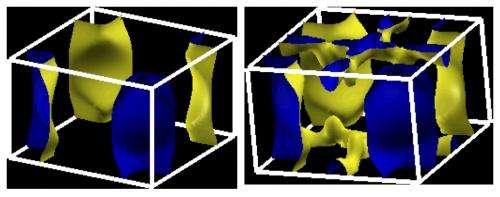February 2, 2015 weblog
Best of Last Week – Popper's experiment realized again, unboiling eggs and the connection between Craigslist and HIV

(Phys.org)—It was an interesting week for physics as Popper's experiment was realized again, by a different team this time, using a different approach, causing physicists to wonder what it actually means because the results still do not violate the uncertainty principle. Also in an international effort, a team found that evidence is mounting for quantum criticality theory which suggests that some odd electronic behavior can be attributable to quantum fluctuations of strongly correlated electrons. Another team at the University of California used the idea of a quantum computer as a detector to show that space is not squeezed—confirming the assumption, based on the theory of special relativity, that space looks the same in all directions.
In other news, Steven Dick, an astronomer with ties to the Library of Congress, stirred interest in and out of the science community by openly asking the question: How would the world change if we found extraterrestrial life? Scientists would be thrilled of course, he notes, but how would everyone else react? Seems reasonable to ponder the implications since we are trying so hard to find it.
Meanwhile another team of deep thinkers has been looking into how countries treat one another when oil is at stake and their study showed that crude conspiracy theories could be right—the need for energy does appear to be a justification for some countries interfering with the running of other countries. And while it might be difficult to find a good use for it, a combined team of chemists from the U.S. and Australia found a way to unboil eggs—at least the whites. The work is actually part of learning how to pull apart tangled proteins and letting them refold, which could have a big impact on the medical and food industries. Also a team of researchers in the U.S. found a higher dementia risk can be linked to more use of common medications and a group of paleontologists unearthed a long-necked "dragon" in China—it is actually a dinosaur, of course.
And finally, if you are a Craigslist user you might be interested in knowing that a team of researchers at the University of Minnesota recently uncovered a connection between Craigslist personal ads and HIV trends. They do not attempt to explain why the advent of Craigslist has led to a 15.9 percent increase in reported HIV cases, but the assumption seems to be that the site promotes risky hookups.
© 2015 Phys.org





















